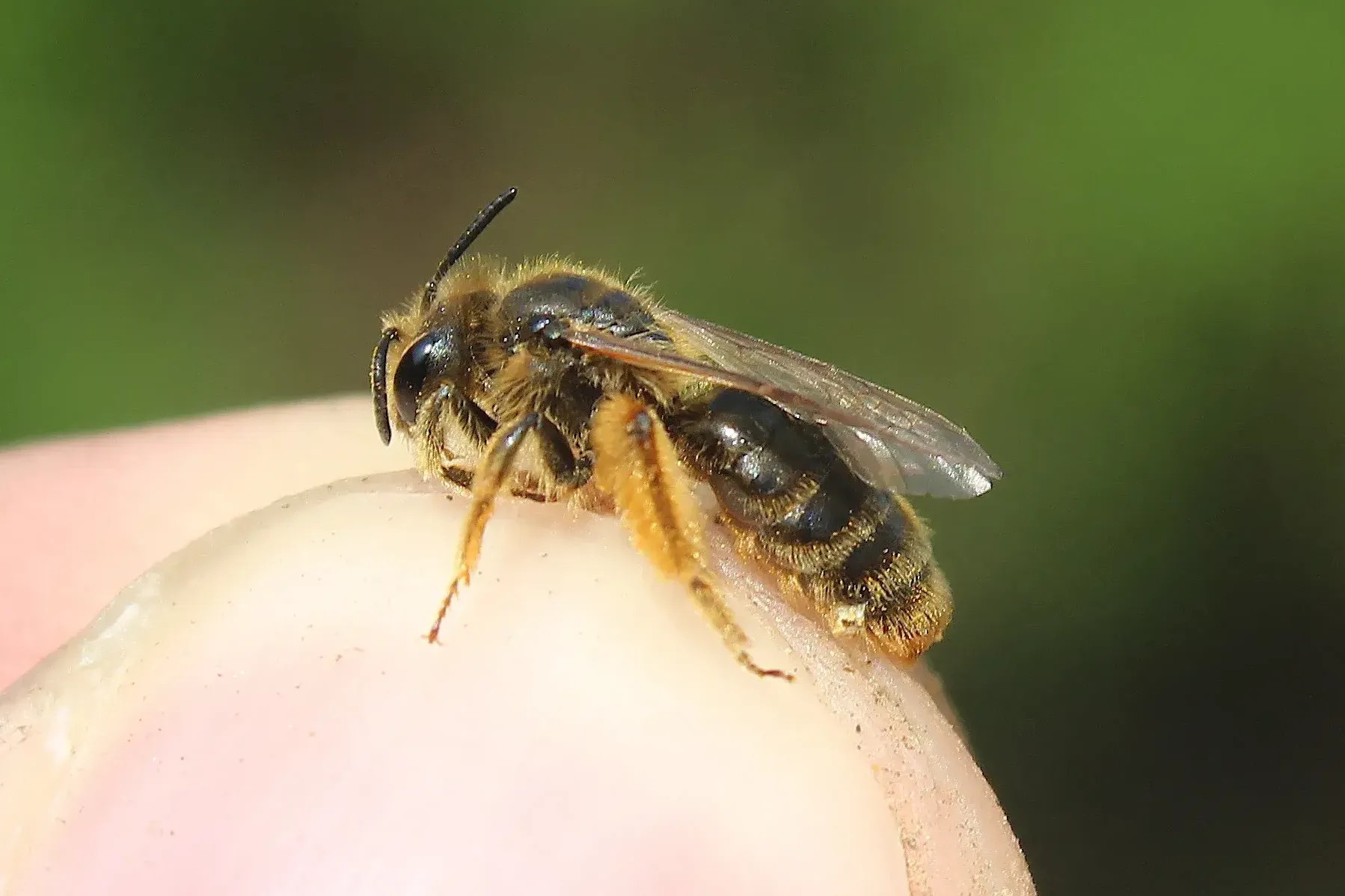
Two rare bee species, absent locally for decades, have resurfaced thriving at a nature reserve in Walsall.
Cats Ear Mining and Nomad bees were sighted by a researcher at Barr Beacon Local Nature Reserve, marking a significant rediscovery, as noted by University of Birmingham PhD student Aaron Bhambra.
“There are only a handful of sites in the region where both species are known to be found together,” he said.
Bhambra described the bees as “very distinctive” with golden abdominal hairs.
He added that this emphasised the importance of suburban green spaces.
“We’ve been monitoring the site for two years now,” he said. “To have both of them in one site is very interesting.”
Walsall Council highlighted the near-threatened status of both species in Britain and attributed their resurgence to ongoing conservation efforts.
Over the past two decades, the council has restored heathland at the reserve, fostering an environment conducive to ground-nesting bees.
Councillor Gary Flint praised the council’s commitment to conservation, noting the site’s role in the Purple Horizons Nature Recovery Project.
“With only a handful of sites in the West Midlands known to harbour good numbers of both species of bee, Barr Beacon has emerged as a critical sanctuary,” he said.
Project manager Chloe Hardman commended collaborative efforts aimed at habitat restoration between Cannock Chase and Sutton Park.
“Knowing that our actions are helping these threatened bee species to survive gives our partnership a real boost. “
——————————————————————————
At Natural World Fund, we are passionate about stopping the decline in our wildlife.
The decline in our wildlife is shocking and frightening. Without much more support, many of the animals we know and love will continue in their decline towards extinction.
When you help to restore a patch of degraded land through rewilding to forests, meadows, or wetlands, you have a massive impact on the biodiversity at a local level. You give animals a home and food that they otherwise would not have had, and it has a positive snowball effect on the food chain.
We are convinced that this is much better for the UK than growing lots of fast-growing coniferous trees, solely to remove carbon, that don’t actually help our animals to thrive.
This is why we stand for restoring nature in the UK through responsible rewilding. For us, it is the right thing to do. Let’s do what’s right for nature!
Donate today at https://naturalworldfund.com/ and join in the solution!

